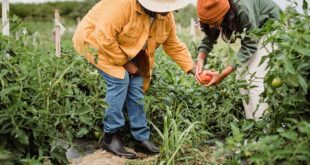A combination of rising costs, shrinking supplies, and concerns about global climate change are spurring the development of alternatives to the burning of fossil fuels to meet our transportation energy needs. Scientific studies have shown the most promising of possible alternatives to be liquid fuels derived from cellulosic biomass. These advanced new biofuels have the potential to be clean-burning, carbon-neutral and renewable. Some could also be delivered through existing pipelines and used in today’s engines, replacing gasoline on a gallon-for-gallon basis with no loss of performance.
A life-cycle assessment (LCA) is typically used to evaluate the potential impact of a product or activity on human health and the environment over the entire cradle-to-grave life cycle of that product or activity. In applying the LCA approach to advanced biofuels, McKone, Horvath and their co-authors identified the following seven grand challenges.
* Understanding farmers, feedstock options, and land use Biomass production for biofuels could displace existing products from land currently used for food, forage and fiber, which could increase the price of these goods in global markets. It could also induce deforestation that would exacerbate global climate change.
* Predicting biofuel production technologies and practices – Many options exist for biofuel production processes and final products. Much of the variability among LCA results for biofuels arises from lack of knowledge about how these different possible production and operation processes will evolve.
* Characterizing tailpipe emissions and their health consequences – Credible and reliable impact estimates for biofuel combustion are needed, but few studies of the health impacts from transportation fuel use have extended beyond air pollutants. Those that included an explicit metric for health damages emphasized mortality rather than morbidity and the overall disease burden.
* Incorporating spatial heterogeneity in inventories and assessments – The health consequences of pollutant emissions vary depending upon where the pollutant is released, with factors such as proximity to large populations looming large. Geographical variability also influences other factors, including soil carbon impacts and water demand consequences.
* Accounting for time in impact assessments – Air emission impacts from tailpipes and production facilities accrue within years and can be allocated to the year of emissions without discounting. GHG emission impacts are distributed over decades and even centuries using integrated assessment models, and are often discounted. Decisions about discounting can strongly influence the outcome of impact assessments, yet there is not a clear rational basis for making these decisions.
* Assessing transitions as well as end states – In addressing transitions, emerging technologies could profoundly change the assumptions that underlie biofuel LCAs. For example, changes in protein production and consumption patterns or in urban land-use policies could open up substantial agricultural land for biofuel production, an action that would fundamentally change a biofuel LCA.
* Confronting uncertainty and variability – Addressing uncertainty is among the greatest of LCA challenges, not only for biofuels, but for other LCA efforts as well. To confront uncertainty and variability, the “doable” and “knowable” must be separated from assumptions that are conditional components of the LCA.
In their report, the authors of the EBI study say that confronting these seven grand challenges for a biofuels LCA requires a good balance between the needs of technology momentum and adaptive decision making, something, they say, that has not always been well-articulated among practitioners of LCA.
 Alternative Energy HQ solar power for homes, wind energy, and bio fuel issues
Alternative Energy HQ solar power for homes, wind energy, and bio fuel issues





